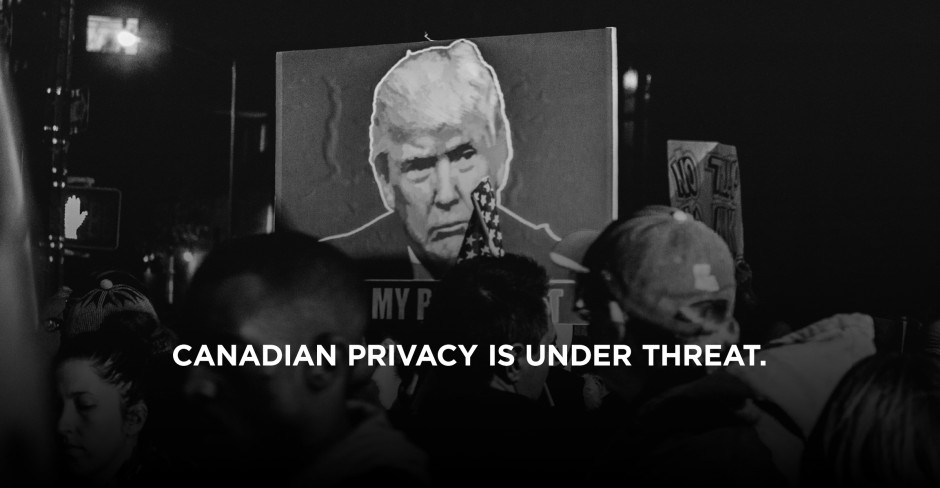Canada must urgently reassess data sharing with the U.S.
President Trump's elimination of Privacy Act protections for foreigners calls for the Canadian government to immediately step up and assess what the impacts are of sharing our personal information with the U.S.
Last week,U.S. President Donald Trump signed an executive order eliminating Privacy Act protections for foreigners.
This order means that as of right now, all your sensitive, personal information — everything from your financial status, to your medical history, your sexual orientation, and even your religious and political beliefs — has no legal protection when your data travels through the U.S., or is shared with U.S. government agencies by Canada’s government.
You don't need to be in the U.S. to be affected,and you don't need to have done anything wrong for your most personal information to be revealed.
What’s most shocking is that it’s our own government that routinely shares our personal information with the U.S. This sharing of personal information happens to innocent Canadians, and there's often no way for individuals to know what has been shared, and with whom.
This extraordinary situation requires immediate action. OpenMedia is filing an urgent privacy complaint with the federal Privacy Commissioner of Canada. We need the Canadian government to step up and assess what the impacts are of sharing our personal information with the U.S.
We’ve been raising concerns for years about the implications of data sharing with the U.S., and what it means for the privacy of Canadians — but now with explicit instructions from the President to “ensure that their privacy policies exclude persons who are not United States citizens or lawful permanent residents from the protections of the Privacy Act”, it is clear that the U.S. government is taking a much more extreme approach to stripping privacy protections from non-citizens.
This new order has real life implications — and requires the immediate attention of the Canadian government. There is no doubt that inappropriate information sharing can have a devastating impact on the lives of individual Canadians.
People have had their personal or professional lives ruined due to information disclosures, despite having never broken the law. Some have faced career limitations, while others have had their personal medical history shared without their consent. Even an encounter with the mental health system 20 years ago can be grounds to deny entry to the U.S.
And it’s not just data sharing we have to be worried about. We’ve been working with researchers at the University of Toronto and York University to help expose the extent to which the data of Canadians is often routed through the U.S. — even if it’s all destined for servers in Canada. In a project called IXMaps, these researchers are working to map how data of Canadians is diverted through the U.S., stripping us of the privacy protections afforded under Canadian law.
The bottom line is this: we have a right to privacy, and if that privacy is under threat as soon as we visit a website, send an email, or communicate with our own government — we need to take action.
And the best way of protecting the privacy of Canadians is to take the fight straight to our own government. These new circumstances require urgent reassessment and reevaluation of how our government shares data with their U.S. counterparts.
Filing this complaint is just the beginning — beyond the research, drafting, and consulting with experts that we’re doing to get it off the ground, we’ll also need to lobby the right people, educate the public about their rights, and ensure that this is a top priority on the federal government’s agenda.
Please consider supporting this urgent action today to make sure we have the tools we need in this fight to protect our privacy and security.


 Take action now!
Take action now!
 Sign up to be in the loop
Sign up to be in the loop
 Donate to support our work
Donate to support our work